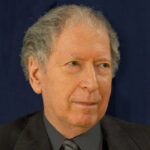Translations and Notes by Kenneth Gorfkle
“I flowered,” glows the bird.
The flower glows: “I flew.”
“You are both wrong.”
…Of course, all three.
What is the source of knowledge? How can one know oneself? “Florecí” imagines a conversation between two protagonists with the poet as observer. In doing so, it articulates the depth of the misconceptions that human beings have of themselves.
Thinking that it is a flower, the bird glows with pride; thinking that it is a bird, the flower glows in the same way. One can be blind about oneself even to the point of taking pride in one’s own misconception! Without objective information from the external world, the subjective viewpoint is rarely correct.
The observer—the poet—notices his own misconception.
Observing the two and himself, the poet takes an even larger view, noting that both the objective and subjective points of view are incorrect. This observation also implies that both points of view contain true aspects of reality. If the bird and flower are mistaken, then the observer is correct, and if the observer is mistaken, then the bird and the flower have captured reality. Both points of view—the objective and the subjective—simultaneously contain correct and incorrect conceptions.
Knowledge is subjective as well as objective. Subjective impressions may be enormously erroneous. Nor is there certainty that what we understand “objectively” is correct.
The truth is, always, a challenge.
Academia
Bazaar: crane: mercy
of cylinders: peninsula:
tarantula: itinerary
of ivy: leafy
sideboard? The sanhedrin
of the desk, in the boldness
of the rug: my cistern.
What is academe?
A marketplace that offers wares from around the world, with varying degrees of quality, from both honest and dishonest vendors? Treasures are there to be found; but the wrong choices, costly.
A crane useful for the construction of the edifice that is my life? The machine, powerful and effective under the control of a trained and experienced operator. Do I have the intelligence and maturity to operate it?
A diploma: the gift mercifully awarded after years of work? The cylinder of the diploma is empty, the diploma only a piece of paper. Is this symbol, so important in the external world, more important to me than what I have learned?
A community marginally connected to the mainland of society, but with its own separate existence? Does this peninsular world form the totality of my world?
A creature that spins webs to permeate, trap, and devour all aspects of my being?
A voyage that lasts many years, without a fixed destination? Even after I arrive, is my final destination the place where I really wanted to go?
A venue reserved for the privileged, where I become knowledgeable, cultured, a member of the elite? A ferocious competition where the law of the jungle prevails? Or, perhaps, that same jungle, hidden beneath the veneer of culture and privilege?
Academe: in effect, all of the above. Examination results, grades and diplomas constitute the judgment of the institution and my own self-judgment. True academe: the judgment of knowledge itself, knowledge that wants to be understood, that demands time at the desk, effort, and objectivity. This, the only judgment that really matters.
And the other part of academe? The expression of knowledge, for what is knowledge worth without its expression? That expression demands boldness from me, for true knowledge often contradicts current thinking. To work, to learn, and to express up to the limit of my ability: the ballast that stabilizes my life and thought: the cistern that refreshes and nourishes me.



